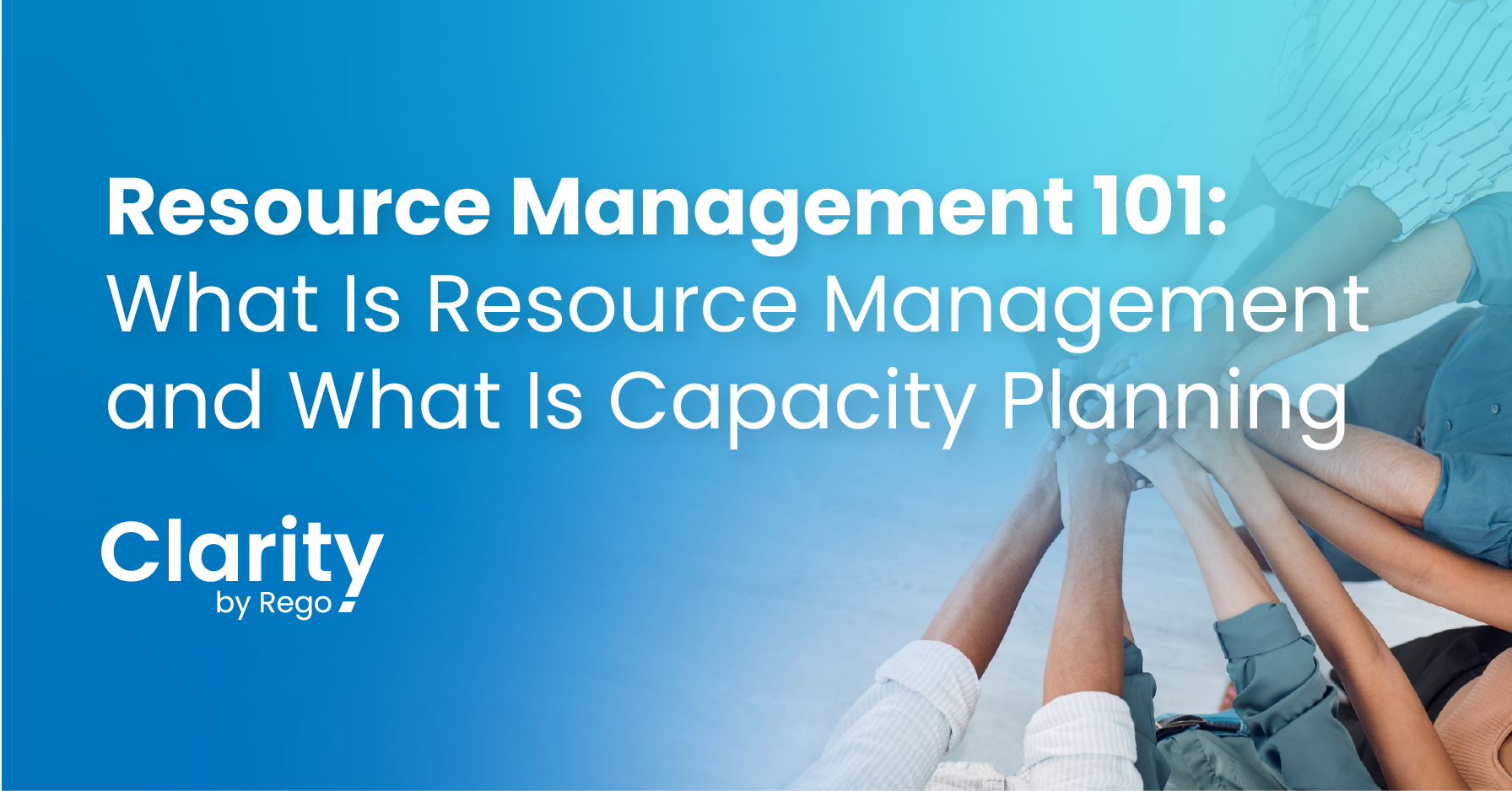by Clarity by Rego
Share
- Resource Management 101: What Is Resource Management and What Is Capacity Planning?

If you’re an experienced project manager or a leader in the Project Management Office (PMO), you likely already know the benefits of resource management and capacity planning. But if these terms are new to you, don’t worry, you’re about to discover two of the most impactful ways to drive project success and boost efficiency. Read on for a primer on resource management, capacity planning, and why they are essential to organizational success.
What’s a Resource?
A “Resource” is a broad term that encompasses people, money, technology, equipment, and even physical space. A resource is anything needed to ensure efficient operations and achieve organizational goals.
Resources can be tangible, such as people, materials, and tools. For example, in industrial supplies, inventory items like tapes and glues (and the equipment used to produce them) are considered resources.
Resources can also be intangible. In service business, skills and expertise could be considered resources. For a data analytics firm, information and data itself may be considered resources.
Resources take many forms. Here are some you’ll likely recognize:
In other words, your organization and industry can best define what a resource is as you’re managing it.
What Does Resource Management Mean?
Resource management is a systematic process for achieving goals efficiently by overseeing and optimizing resources. It involves identifying, planning and scheduling, allocating and tracking, and optimizing your resources.
This is an operational process — it’s about managing day-to-day activities to keep the business running smoothly — effectively and efficiently.
What Is Capacity Planning?
Capacity planning is closely related but focuses on current and forecasting future needs. It ensures that organizations have the right resources to meet current and future demands. Unlike resource management, it is more strategic and longer-term in nature.
What’s the Difference?
Although they are interconnected, here’s how resource management and capacity planning differ:
Resource Management
Capacity Planning
Why Do Resource Management and Capacity Planning Matter?
Both resource management and capacity planning are needed to optimize your organization.

Together, they achieve project or initiative success. They help businesses meet customer demands, streamline processes, cut costs, boost revenue, improve satisfaction, and reduce employee turnover.
Using both, organizations can …

Best Practices
If resource management and capacity planning were easy, every organization would excel at them. Here are a few tips to help you begin your resource management and capacity planning journey.
Plan and Think Holistically
Effective management requires adequate planning, including having a holistic view – an eye on changes to the economy, industry, and world. Understand disruptors (such as AI) and how it may impact your organization, too. As risks become known, companies need to react, re-plan, forecast, and correctly handle operations.
Analyze, Adapt, and Continually Improve
By analyzing your data, you can address issues as they arise. Some software helps you analyze your organization as well as creating interdependencies and what-if scenarios to help you better plan and anticipate changes.
Through analyzing your information, you’ll notice warning signs and continually improve.
Learn more about the four As of resource management and capacity planning.
Warning Signs
As you review data, you may notice trends that are early warning signs.
Communicate and Collaborate
Use communication practices to keep leadership and stakeholders informed of adaptations and potential impacts. When people are in the know and collaborating, you’ll see fewer issues.
Set the Right Roles
Your organization needs a productive team to fully realize success. These positions are especially important to resource management and capacity planning.
Leaders
Your leaders, including those in the PMO, are especially important in organizations. People who are accountable, unafraid to be wrong, interested in solving problems, eager to build relationships, and supportive of the culture are vital to resource and capacity work. They should, of course, also care about the bottom line – revenue and expenses.
Your PMO team should be champions of change, eager to work across divisions and departments to get cross-functional work done.
Project Managers
These professionals keep projects on track. Ideally, project managers (PMs) are organized and skilled at time management. They can see the big picture as well as focus on project details. They’re resourceful, agile, and adaptable, interested in overcoming obstacles. PMs are also familiar with tools (such as ADKAR) and project software.
Resource Managers
Unlike project managers, resource managers oversee strategic company-wide resource allocation. They focus on long-term planning and ensuring assets (people and tools) are optimized.
Put the Right Systems in Place
You’ll need leadership buy-in. Not only does your CEO or president need to agree, but you also need support from the PMO, Human Resources, Operations, IT, Sales, etc. It’s a company-wide commitment.
You also need software that supports your processes. For many organizations, MS Project (without a connector to a more powerful tool) won’t suffice. You’ll need software to track projects and resources, including your finances.
Review these regularly, too. Organizations sometimes outgrow processes and software as they expand and change.
Get more details, download the resource management white paper.
Ready for More Ideas?
We have a list of the top ten best practices for resource management.

Let Rego Be Your Guide
Rego Consulting’s experts have decades of experience helping organizations overcome resource management and capacity planning challenges. Our guides can help you address your resource management and capacity planning issues as well as ensure you have the right stakeholders involved and help you manage change. Th Rego team has decades of experience helping organizations just like yours.
Plus, we’re specialists in tools such as Clarity by Rego, an intuitive project and portfolio management solution for small to midsized businesses that want more than MS Project can offer. It’s a great way to get started in resource management and capacity planning. Take a tour! Or, get a demo or a free trial.
STAY IN THE LOOP
Get Notified of Updates.
Stay ahead of the curve by subscribing to our newsletter. Get the latest insights, strategies, and tools delivered straight to your inbox, and empower your business to achieve more.


